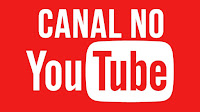A headache, toothpaste, a weekend, a stomach ache, table tennis.
There are no clear rules for this. If you are not sure, it is usually better to write two words. You can often put a hyphen (-) between the two words (but this is not usually necessary).
For example: a dinning-room, the city-center.
Note the difference between:
a) A wine glass (perhaps empty) and a glass of wine (= a glass with wine in it).
b) A shopping bag (perhaps empty) and a bag of shopping (= a bag full of shopping).
When we use NOUN + NOUN, the first noun is like an adjective. It is normally singular but the meaning is often plural. For example, a bookshop is a shop where you can buy books, an apple tree is a tree that has apples.
In the same way we say:
A three-hour journey (not 'a three-hours journey')
A ten-pound note (not 'pounds')
A four-week English course (not 'weeks')
Two 14-year-old girls (not 'years')
A three-page letter (not 'pages')
So we say:
It was a three-hour journey. But, 'the journey took three hours.'
Exercise:
What do we call these things and people? Use the structure noun + noun.
1) A ticket for a concert is …
2) A magazine about computers is …
3) Photographs taken on your holiday are your …
4) Chocolate made with milk is …
5) Somebody whose job is to inspect factories is …
6) A hotel in central London
7) The results on your examinations are your …
8) The carpet in the dining room is …
9) A scandal involving a football club is …
10) A question that has two parts is …



 11:28
11:28
 ADM
ADM
 Categoria
Categoria







0 comentários:
Postar um comentário
-Este espaço é exclusivamente reservado para usuários que tenham dúvidas ou aviso de link quebrado.
-O blog também aceita sugestões, elogios e críticas.
-Os comentários ofensivos que desrespeitem outros usuários ou moderadores do blog serão excluídos.
-Obrigado e volte Sempre!